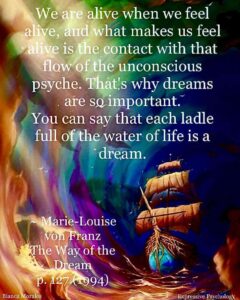
“We can’t be complete if our sensitive side is not cultivated.” On hearing these words last weekend I touched the Notes icon on my iphone and wrote them down before I lost them. I was sitting in the studio of dancer and choreographer Douglas Dunn with about 25 fellow travelers who had come for a long weekend of immersion in New York’s vibrant art scene. We were visiting galleries, studios and museums and attending concerts and presentations by some of the outstanding artists who had worked at the Atlantic Center for the Arts in New Smyrna Beach, Florida at one time or another.
On this Saturday morning we had just witnessed a rehearsal of Cassations, an hour-long piece for 13 dancers that was to be presented at the 92nd Street Y Harkness Dance Center that night. Douglas was talking about how as a youth he had been an athlete, but when he decided to be a dancer his father had rigidly resisted and never truly accepted his decision. Since arriving in New York two days earlier I had been searching for a theme for the post I intended to write about this trip and there it was.
Call it what you will—“sensitive side,” “feminine side,” “soft, tender, vulnerable feelings,” “disowned emotions,” “creative instinct,” “love of grace, beauty and harmony,” appreciation for the arts,” “receptivity to otherness”—Douglas had touched on an archetypal truth with profound relevance in today’s world. Everywhere we look today—in politics, the family, education, business, religion, international affairs, and individual lives—we see a deeply entrenched intolerance for qualities like this which have long been associated with the feminine half of creation.

Consider, for example, the current political debates. In an October 10th article in the Huffington Post, Brenda Peterson wrote about Romney and Obama’s different styles. In her words, “Romney’s masculine skills were on full display, but his feminine skills were sorely lacking. The pundits loudly credit Romney for his combative style, his aggressive, in-your-face energy and his hyper-attack mode. They applaud these debate tactics as if this was not a presidential debate, but a bloody prizefight…Is this what our uncivil union has come to — a prizefight?”
I’m not writing this post to push a candidate; the last thing I want is to fuel the fight. I just want us to see the real culprit: the “other” candidate or party won’t ruin this country, but our inability to respect humanity’s sensitive side, our sensitive side, will. At bottom, the “gender gap” is not about the sexes, but the differences between the two basic drives common to all: our “masculine” drive for self-preservation and our “feminine” drive for species-preservation.
For the last 5,000 years our species has been so obsessed with the masculine drive and made so much progress as a result, that males and females alike are conditioned to see its qualities as somehow “superior” to those associated with the feminine drive. This blinds us to the connection between our psychological one-sidedness and the terrible problems it has caused.
Our inner divisiveness is the true reason for the ugly and dangerous outer-world symptoms plaguing us today. Blaming, fighting and resisting otherness (whether disowned personal qualities, or other people, ideals, beliefs, parties or nations) will never solve our problems. Ms Peterson’s conclusion that “we all win with a civil discourse, a civil union” is psychologically and spiritually sound. As individuals and as a nation, the best contribution we can make to creating a healthier world is to model balance and completion by cultivating our sensitive sides.
You can purchase my new book, Healing the Sacred Divide, at www.amazon.com or www.larsonpublications.com.

A Lesson on Aging
I’m so happy to be back in the mountains. I love the weather, the trees, the birds, the rushing creek, the flowering bushes. The beauty.





0 Responses
There’s so much here to note. Interesting to me that you associate creativity with femininity. It seems obvious now I think about it, but historically creativity has often been owned by men, and women alienated from their creativity. Will have to think about this some more.
During the last campaign I noticed that some of Obama’s body language was distinctly feminine. (Which is not to say effeminate.) I thought at the time that it probably functions as a strategy (whether conscious or otherwise) that made it possible for a strong, tall, intelligent black man to be so, without being threatening to those who are (consciously or otherwise) afraid of black people. I didn’t see that in this debate, but I only watched a little bit.
I think you’re right about inner divisiveness. It’s why it’s so important for all of us to do the inner work. It’s not just an individual issue; it is part of how we treat other people, of international relations, of our relationship with the earth.
And, I’ve already purchased your book. Looking forward to reading it. Thank you for writing this.
Hi Rachel,
Every human contains an instinct for creativity, but yes, historically it has more often been the privilege of males than females to have the time, energy, and social support to develop it. However, there are many nods to the creative feminine throughout the ages; for example, the 9 Greek muses said to inspire creativity were women. And Jung thought of our unconscious as the realm of the creative feminine. The reason I included it as an aspect of the feminine in this piece is mostly because of the fact that our masculine oriented culture has never been very big on supporting the Arts; hence, the collapse of the NEA. Promoting the Arts is no longer on our national agenda. I find this very disturbing.
Thanks so much for purchasing my book! I look forward to hearing your thoughts on it! And thanks too for your thoughtful comments here.
Jeanie